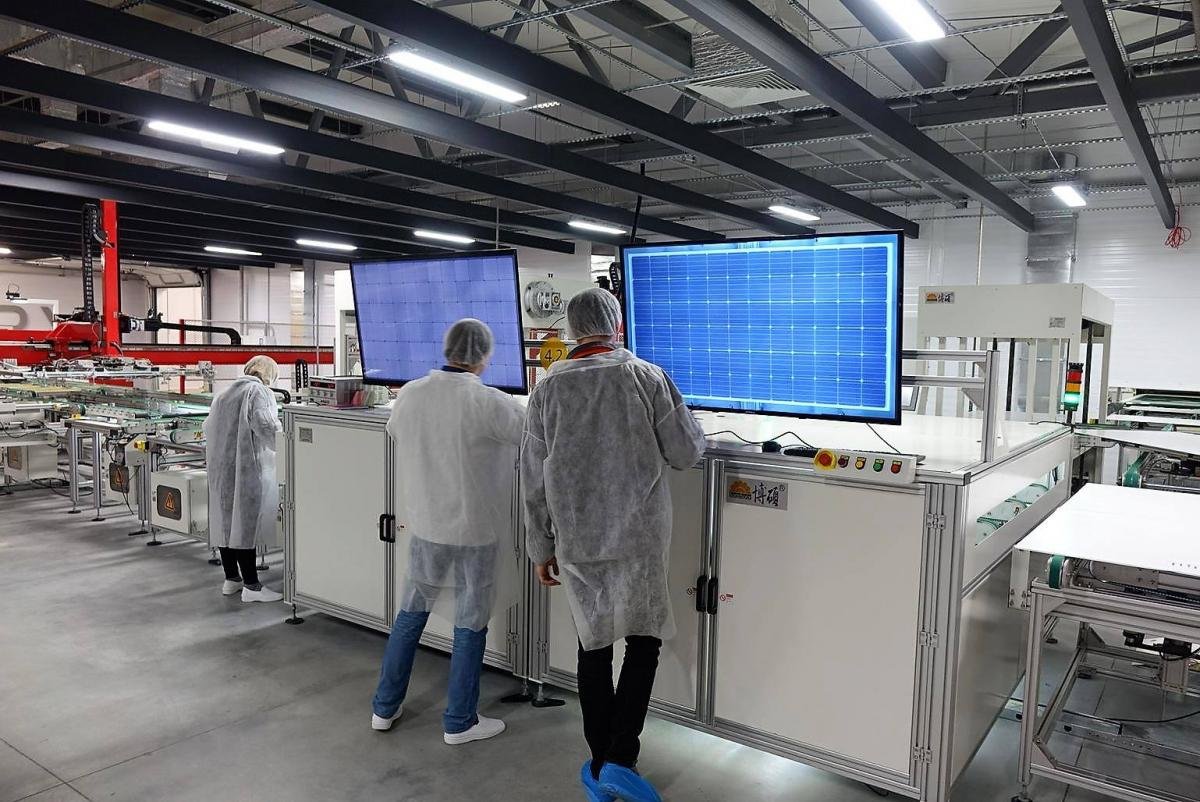
Roadmap for the Sustainable Recovery of Ukraine
The Roadmap for the Sustainable Recovery of Ukraine is a joint effort by leading civil society organisations, think tanks and academic institutions. It aims to outline a list of priority reforms, policies, and structural changes that need to be implemented over the next few years to ensure environmentally sustainable and resilient recovery in six key sectors: agriculture, buildings, economy, energy, environment and transport.
-

Agriculture
Sustainable development of the agricultural sector should ensure food security, soil conservation, water conservation and biodiversity. Key reforms include land use, introduction of agroecological practices, development of small-scale farming and local processing, reduction of greenhouse gas emissions from the sector and its adaptation to climate change, as well as support for sustainable livestock farming.
-

Buildings
Sustainable reconstruction involves a comprehensive transformation of new construction and existing buildings in Ukraine to improve their energy efficiency, environmental friendliness and compliance with European standards. Key steps include: the introduction of quality control, standards for nearly zero-energy buildings and zero-emission buildings, circular economy principles, promoting green certification, and encouraging modernisation and implementation of projects using high-efficiency heating systems and renewable energy sources.
-

Economy
Economic recovery requires a new industrial policy synchronised with the European Green Deal and the EU Clean Industry Agreement. It is necessary to provide for the development of clean technologies, industrial clusters, low-carbon production, and the launch of green financing. The focus should be on increasing added value, modernising production capacities and export integration. Innovation will be important for ensuring the development of the state.
-

Energy
Important aspects for the sustainable recovery of the energy sector include decentralisation of electricity generation, preservation and development of centralised heating systems, and a focus on decarbonisation of the energy system as a whole. Further support is proposed for distributed generation from renewable energy sources (RES), energy storage technologies, development of active consumers, aggregation and demand management, as well as updating the regulatory framework to stimulate investment and ensure energy security.
-

Environment
Ensuring sustainable recovery through an environmental lens requires the implementation of interrelated reforms and policies, integration of environmental issues into cross-sectoral planning, attraction of green investments and financing for environmental initiatives at all levels, and strengthening of the institutional capacity of public authorities. Appropriate legislative changes are needed to improve environmental control, introduce legal liability for environmental violations, and harmonise with European standards.
-

Transport
Sustainable recovery of the sector requires Ukraine's integration into the European transport space through harmonisation of legislation, design standards and environmental requirements with EU and TEN-T norms, reform of road classification and introduction of digital data management. The priority should be strategic planning of infrastructure projects with a focus on critical bridges, railway development, ensuring the financial sustainability of the sector, and launching public-private partnership mechanisms.
-
All-Ukrainian Agency for Investment and Sustainable Development, ANTS – National Interests Advocacy Network, Association "Energy Efficient Cities of Ukraine", Austausch e.V., Basel Institute on Governance, CEE Bankwatch, Centre for Economic and Legal Analysis, Centre for Economic Strategy, Centre for Environmental Initiatives “Ecoaction",Civil Network "OPORA", Committee on Agrarian, Land and Environmental Law of the Ukrainian National Bar Association, DiXi Group, NGO Ecoclub, NGO Ecosmart, Energy Act for Ukraine Foundation, Energy Transition Coalition, Eurogroup for Animals, Forest Initiatives and Communities, NGO Green Growth Comms, Greenpeace Ukraine, Helvetas, Institute for Economic Research and Policy Consulting, Institute for National Economy Development,International Institute for Sustainable Development, International Charitable Organisation “Environment-People-Law”,International Charitable Organisation ‘Information Centre ’Green Dossier‘, Nature Fund of Ukraine, People in Need, Razom We Stand, RePower Ukraine Foundation, ReThink, NGO “Save Dnipro”, Transport & Environment, Ukrainian Green Building Council,Ukrainian Nature Conservation Group, Urban Reform, Vid Sertsya Budova, Vizion Zero, WWF-Ukraine, Zero Waste Alliance Ukraine.
We are grateful to the experts from the Green Transition Office, Eindhoven University of Technology, Institute for Economics and Forecasting of the National Academy of Sciences of Ukraine, Oxford University, State Enterprise “Ukrainian Industrial External Expertize”for their participation in the discussions and suggestions, as well as the European Climate Foundation for its organisational support. -
Marine Abramian, Anna Ackermann, Anton Antonenko, Anastasiia Baklan, Yanina Basysta, Mariia Belkina, Vasylyna Belo, Oleksandra Betliy, Maksym Bevz, Tetiana Boiko, Anastasiia Bondarenko, Anton Chepurko, Iryna Chernysh, Anna Danyliak, Anastasiia Drapaliuk, Kostiantyn Fedorov, Natalia Gozak, Polina Holub, Valentyna Huch, Olha Ihnatenko, Anastasiia Ivashyna, Dmytro Karabchuk, Natalia Kholodova, Andrii Kitura, Iryna Klymas, Polina Kolodiazhna, Valeriia Kolomiiets, Ievgeniia Kopytsia, Oksana Kosenko, Viktoria Kovalenko, Olena Kravchenko, Kostiantyn Krynytskyi, Maksym Kryvosheiev, Bohdan Kuchenko, Juliia Kvitka, Oleh Lystopad, Mykhailo Lukianyk, Nataliya Lushnikova, Svitlana Lutsiuk, Olha Lyashchuk, Nataliia Lytvyn, Tamara Malkova, Andrii Martyniuk, Kateryna Melnyk, Oleh Mykhaliuk, Anastasiia Nahorna, Oleksandra Naryzhna, Yuliana Onishchuk, Olena Pavlenko, Sviatoslav Pavliuk, Serhii Povazhniuk, Roman Puchko, Iuliia Pushko, Maria Repko, Viktor Riabokin, Oleh Savytskyi, Artem Semenyshyn, Mykola Shlapak, Kateryna Shor, Sofiya Shutiak, Sofia Sydorenko, Yaroslav Teleshun, Julia Usenko, Danylo Vankovych, Oleksii Vasyliuk, Volodymyr Vlasiuk, Nataliia Volyk, Valentyna Vozna, Anastasiia Yakhyniuk, Daryna Yaroshovets, Vadym Yemets, Viktor Zagreba, Iryna Zahorodnia